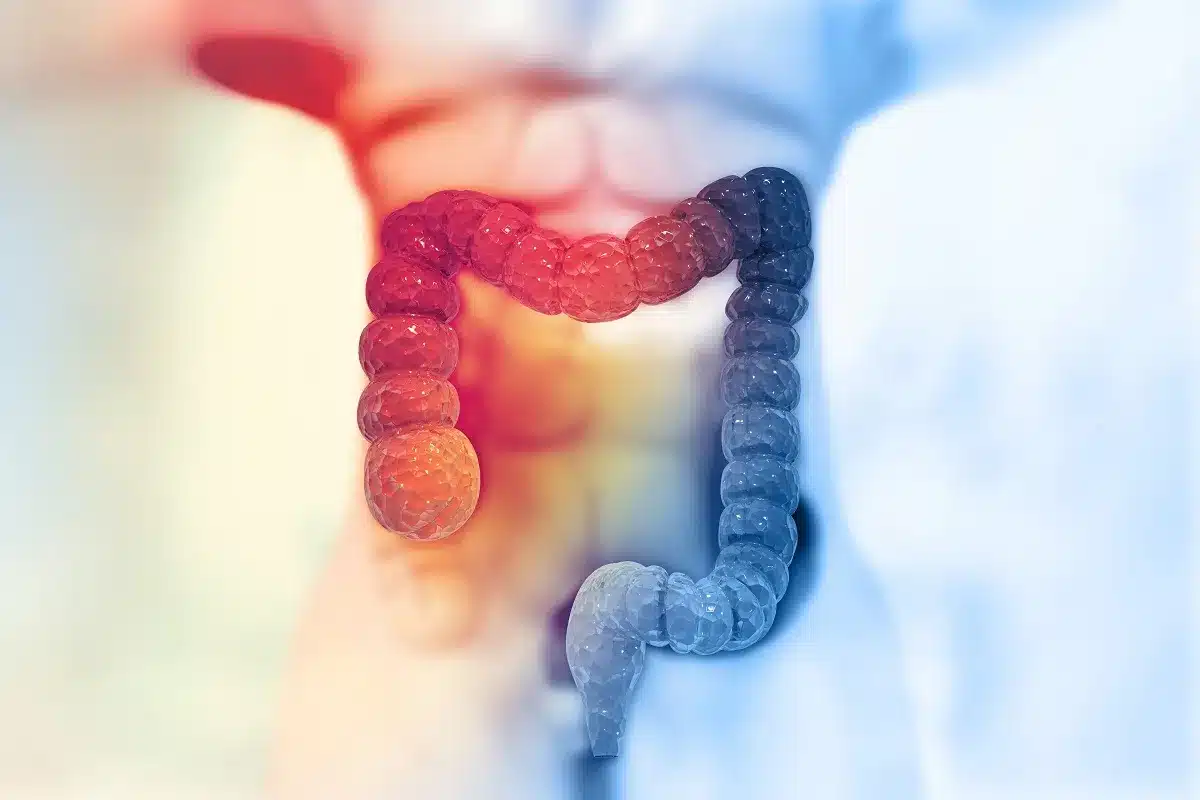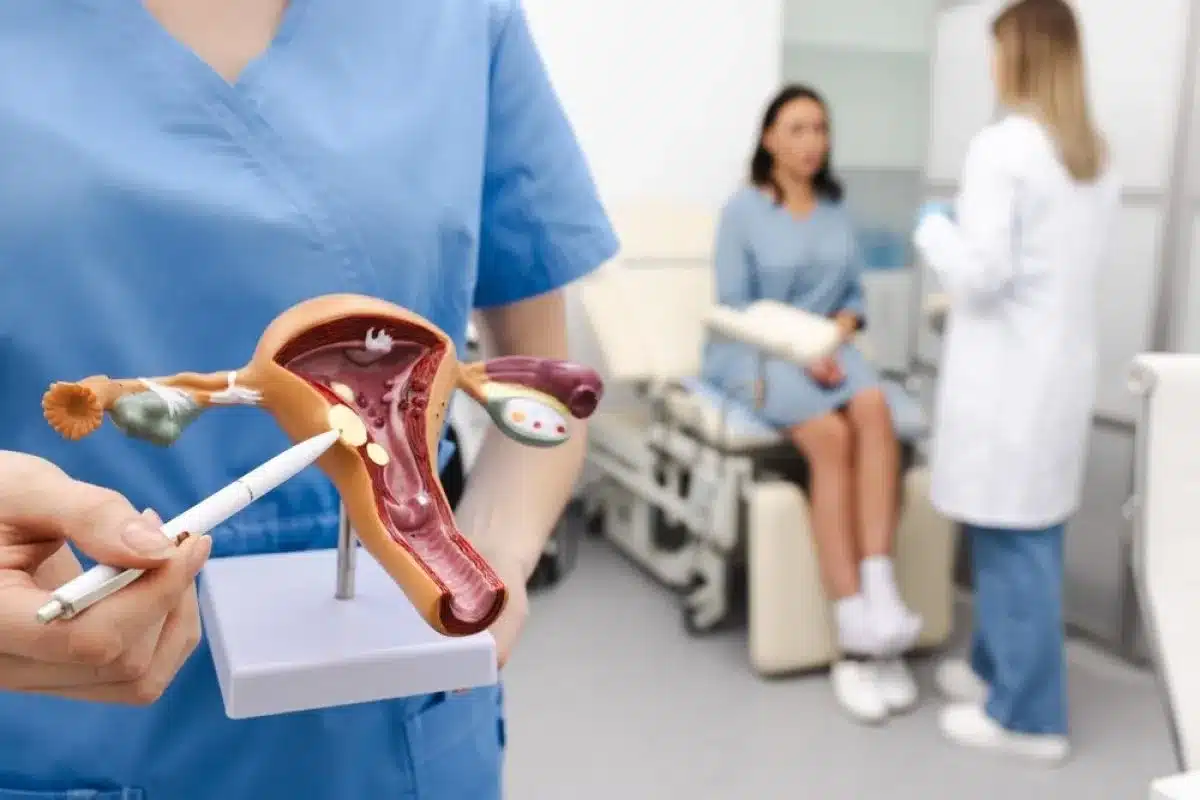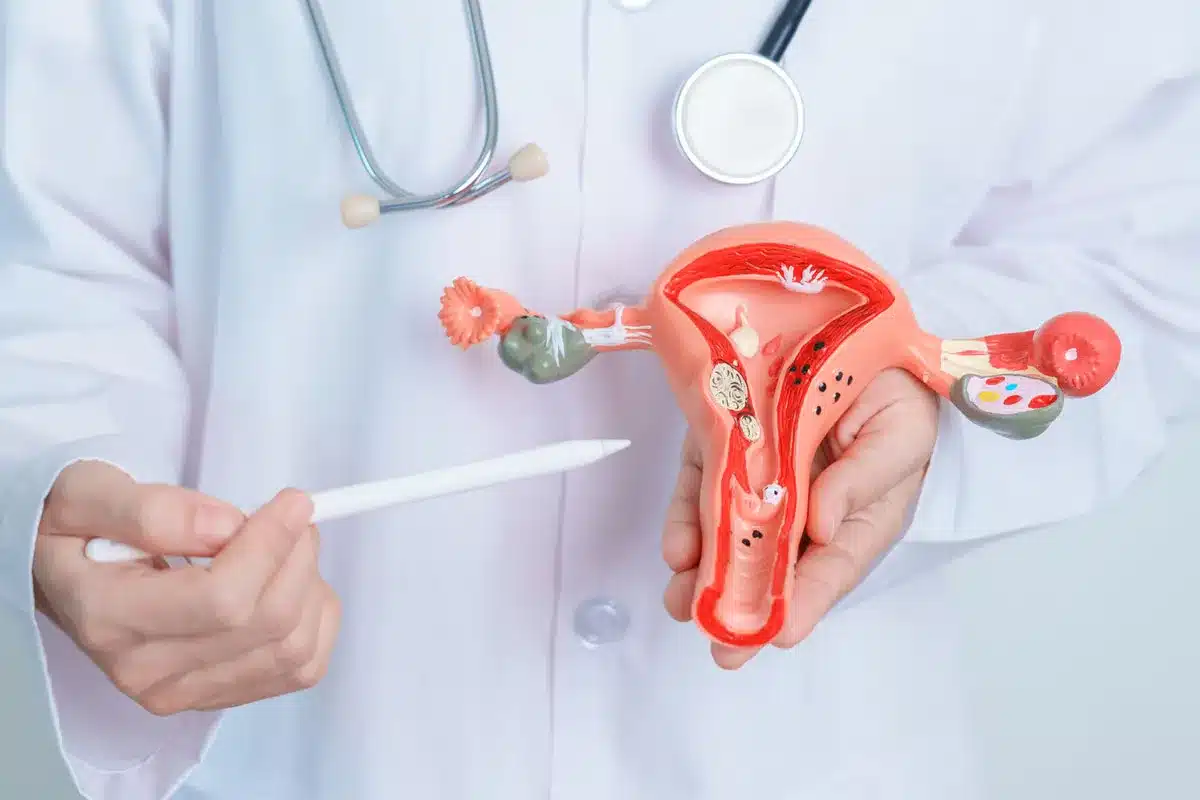Fasting promotes stem cell growth, and recent studies have found a strong link between periods of fasting and better cellular regeneration. It seems fasting can significantly boost the creation of new stem cells, which could lead to substantial improvements in overall health.
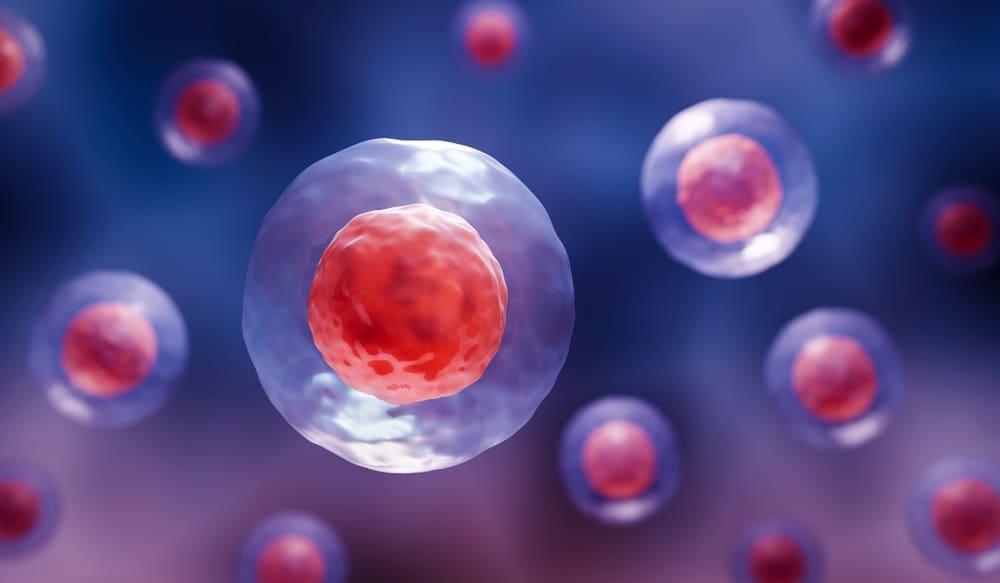
The link between fasting and stem cells is getting more attention. As we dive into this, it’s clear that fasting’s effect on stem cells is key. It could change how we approach regenerative medicine.
Key Takeaway
- Fasting has been shown to stimulate the production of new stem cells.
- The connection between fasting and stem cell regeneration is a growing area of research.
- Understanding this relationship could lead to new approaches in regenerative medicine.
- Fasting may offer a pathway to better health through enhanced stem cell activity.
- More research is needed to fully grasp fasting’s impact on stem cell health.
The Science of Stem Cells and Cellular Regeneration
At the heart of cellular regeneration are stem cells. These are the cells that can turn into many different types of cells.
What Are Stem Cells and Why Are They Important?
Stem cells are unique cells that can become many different cell types. This makes them key for the body’s repair and upkeep. They are vital for cellular regeneration, helping tissues and organs to heal and grow back.
The role of stem cells is to replace or fix damaged cells. This is important for keeping us healthy and preventing sickness.
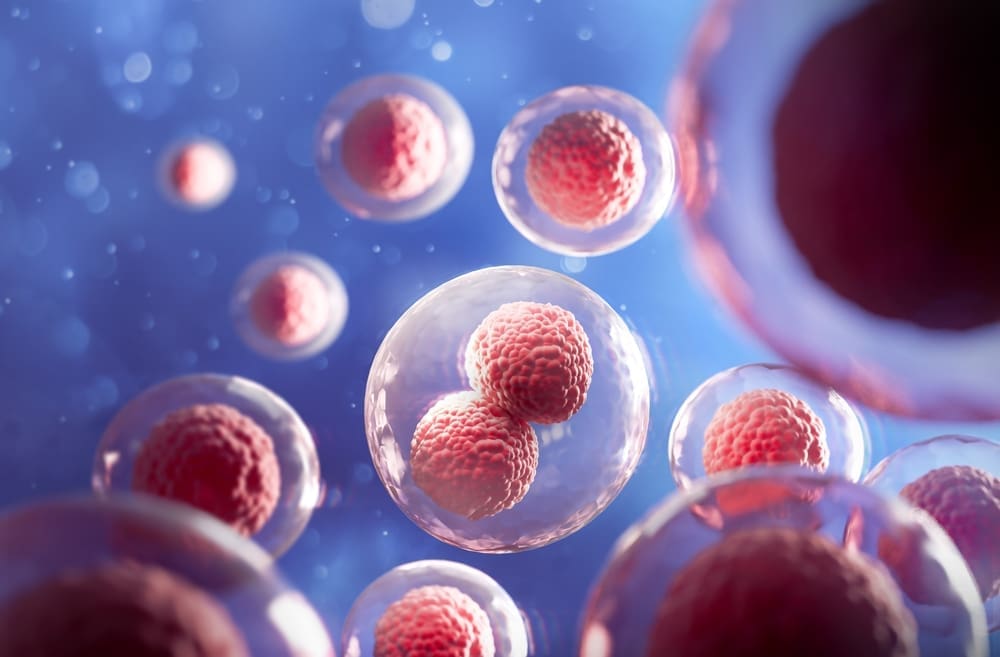
Natural Stem Cell Production in the Body
The human body naturally makes stem cells. These are important for keeping tissues healthy and for fixing damaged ones. This process is complex, involving many cellular and molecular steps.
Stem cells are found in places like bone marrow, fat tissue, and blood. They act as a backup for fixing damaged cells.
The Role of Stem Cells in Healing and Longevity
Stem cells are key in healing and longevity. They help fix damaged tissues and keep organs working well. Their ability to change into different cell types is essential for our health.
By helping the body fix itself, stem cells keep us feeling alive and may even help us live longer.
Understanding the Fasting Process
Fasting is not just one way to do things; it has many methods. Each method has its own benefits and challenges. It’s important to know about these different ways to fast and how they affect our metabolism.
Different Types of Fasting Protocols
There are many fasting protocols out there. Some popular ones include:
- 16/8 Method: Fast for 16 hours and eat in an 8-hour window.
- 5:2 Diet: Eat normally for 5 days and limit calories to 500-600 on the other 2 days.
- Alternate Day Fasting: Alternate between normal eating days and fasting days.
- Extended Fasting: Fast for more than 24 hours, up to several days.
Each fasting method has its own benefits. The right one depends on your health goals, lifestyle, and health status.
Metabolic Changes During Fasting
When you fast, your body changes a lot. First, it uses up its glucose and then starts breaking down fat for energy. Hormones like insulin and glucagon also change, helping to use stored energy.
Fasting leads to a state called ketosis. In this state, your body burns fat for energy and makes ketones. These ketones are an alternative fuel for your brain and other tissues.
Historical and Cultural Perspectives on Fasting
Fasting has been around for centuries in many cultures and religions. It’s used for spiritual growth, as a form of protest, and for health reasons. Knowing its history and cultural background helps us understand its benefits and how it fits into different lifestyles.
From spiritual fasts in religions to caloric restriction in cultural rituals, fasting has a big role in history. It keeps evolving, with modern science revealing more about its effects on our bodies.
The Biological Mechanism: How Fasting Affects Cellular Function
Fasting starts a complex process in the body. It changes how cells work, from how they use energy to how they handle stress.
Metabolic Switching and Energy Utilization
When you fast, your body changes. It starts using fat for energy instead of glucose. This change happens when your glycogen stores run out, usually in 12 to 24 hours.
Using ketones as energy leads to several benefits:
- More fat is broken down
- Mitochondria work better
- Insulin sensitivity improves
| Metabolic State | Primary Energy Source | Key Characteristics |
| Fed State | Glucose | Insulin dominant, glucose utilization |
| Fasted State | Ketones | Increased fat breakdown, improved insulin sensitivity |
Hormonal Changes During Fasting
Fasting causes big hormonal changes that affect how cells work. Lower insulin and more glucagon and cortisol help the body adapt.
These changes lead to:
- More autophagy
- Better cellular cleaning
- Cells are more stress-resistant
Cellular Stress Response and Adaptation
Cells react to fasting stress by starting survival and renewal pathways. This cellular stress response includes making heat shock proteins and starting autophagy.
The table below shows important parts of the cellular stress response during fasting:
| Cellular Response | Description | Benefit |
| Autophagy | Cellular cleaning process | Removes damaged parts |
| Heat Shock Proteins | Protects against protein damage | Makes cells more resilient |
Autophagy: The Cellular Cleaning Process
Autophagy is a natural process where cells clean themselves by recycling damaged parts. It’s key for keeping cells healthy. It helps remove damaged organelles and proteins, keeping cells balanced and helping them grow back.
What Is Autophagy and How Does It Work?
Autophagy, or cellular self-digestion, is how cells break down and recycle their parts. It’s important for cell health as it gets rid of damaged parts. This helps prevent cell damage and encourages cell growth.
Autophagy uses special structures called autophagosomes to grab damaged parts. These structures then merge with lysosomes, where the damaged parts are broken down and reused.
How Long Does It Take for Autophagy to Start?
How fast autophagy starts can depend on the fasting method and the cell’s condition. Usually, it begins within 12 to 24 hours of fasting. But, this time can change based on diet, age, and health.
The Connection Between Autophagy and Stem Cell Activation
Autophagy is important for activating stem cells and regenerating cells. It cleans up damaged parts, making it easier for stem cells to work and help repair tissues. Studies show that fasting can boost autophagy, leading to more stem cells and better cell repair.
| Fasting Duration | Autophagy Level | Stem Cell Activation |
| 12-24 hours | Moderate | Initial activation |
| 24-48 hours | High | Significant activation |
| 48-72 hours | Very High | Peak activation |
In conclusion, autophagy is a critical process linked to stem cell activation and regeneration. Knowing how autophagy works and how fasting triggers it helps us understand how to keep cells healthy and promote growth.
Scientific Evidence: Fasting for Cell Regeneration
Recent studies have shown fasting’s role in boosting stem cell regeneration. This section will look at the scientific backing for fasting in cell regeneration. We’ll cover both animal studies and human clinical trials.
Key Research Studies and Findings
Several studies have looked into fasting’s effects on stem cell regeneration. They found fasting can increase new stem cell production. This is key for fixing and growing tissues.
A study in Cell Stem Cell showed fasting boosts the immune system. It does this by encouraging more stem cell production.
Table: Summary of Key Findings on Fasting and Stem Cell Regeneration
| Study | Subject | Key Findings |
| Cheng et al. (2014) | Mice | Fasting promotes stem cell regeneration and improves immune function. |
| Wei et al. (2017) | Human Subjects | Alternate-day fasting enhances stem cell production and reduces oxidative stress. |
| Pistilli et al. (2018) | Mice | Fasting cycles stimulate hematopoietic stem cell regeneration. |
Animal Studies on Fasting and Stem Cells
Animal studies have given us a lot of insight. For example, mice studies show fasting boosts stem cell activity. This helps in repairing and growing tissues.
Human Clinical Trials and Observations
Human trials have also looked into fasting’s effects. While there are fewer human studies, the data suggests fasting is beneficial. It seems to help in producing more stem cells and improving health.
In conclusion, studies from animals and humans support fasting’s role in stem cell regeneration. More research is needed to fully grasp how fasting works. This will help us understand its full health benefits.
Short-Term vs. Long-Term Fasting for Stem Cell Production
Finding the right fasting time is key to using stem cells for healing. Different fasting times can affect stem cell production in different ways. It’s important to know how long to fast to get the best results.
24-Hour Fasting Effects on Cellular Health
Fasting for 24 hours can improve how cells work. During this time, the body changes in ways that help stem cells grow. Research shows that short fasting can start autophagy, a process where cells clean themselves out.
Benefits of 24-hour fasting include:
- Increased autophagy
- Enhanced cellular cleaning
- Improved insulin sensitivity
Extended Fasting Protocols (48-72 Hours)
Fasting for 48 to 72 hours can boost stem cell production more than shorter fasts. This longer time lets cells regenerate more deeply. Studies show that longer fasting can increase stem cell activity. This might be because of more growth factors and less oxidative stress.
| Fasting Duration | Effects on Stem Cells | Notable Benefits |
| 24 Hours | Stimulates autophagy, initial increase in stem cell activity | Improved cellular health, enhanced autophagy |
| 48-72 Hours | Significant increase in stem cell production, enhanced cellular regeneration | Deeper cellular renewal, increased growth factors |
| 5+ Days | Prolonged stem cell activation, long-term regenerative effects | Long-term health improvements, possible longevity benefits |
Prolonged Fasting (5+ Days) and Stem Cell Activation
Fasting for more than 5 days can activate stem cells for a long time. Research shows longer fasting can keep stem cells active longer. But, it’s important to be careful and have a doctor watch you, as it can also have risks.
Things to think about with long fasting include:
- Medical supervision is recommended
- Monitoring for side effects
- Ensuring proper hydration and nutrition during refeeding
The 72-Hour Fast: A Sweet Spot for Stem Cell Growth?
Research shows a 72-hour fast might boost stem cell activation. This time frame triggers important metabolic shifts. These changes could help with cell growth.
Why 72 Hours Is Significant for Cellular Regeneration
A 72-hour fast is key because it boosts autophagy and stem cell production. It also changes the body’s energy use from glucose to ketones. This could help renew cells.
Key benefits of a 72-hour fast include:
- Increased autophagy, helping to remove damaged cellular components
- Enhanced stem cell production, potentially aiding in tissue repair
- Improved cellular stress resistance, contributing to overall health
What Happens to Your Body During a 72-Hour Fast
During a 72-hour fast, your body changes a lot. First, it uses up glucose, then starts breaking down fat. Later, it makes ketones, which become the main energy source.
The process can be broken down into several stages:
- The first 24 hours: Depletion of glucose stores and initial shift to fat metabolism
- The second 24 hours: Increased production of ketones and enhanced autophagy
- The third 24 hours: Peak ketone production and potentially heightened stem cell activity
Safety Considerations for Extended Fasting
While a 72-hour fast might be beneficial, safety is key. Be aware of risks like dehydration, nutrient deficiencies, and effects on people with diabetes or eating disorders.
Safety tips for a 72-hour fast:
- Consult with a healthcare professional before starting
- Stay hydrated by drinking plenty of water
- Monitor your body’s response and be prepared to break the fast if adverse effects occur
- Consider electrolyte supplementation to prevent imbalances
Knowing the benefits and risks helps make smart choices about 72-hour fasting.
Intermittent Fasting and Stem Cell Activation
Recent studies show that intermittent fasting can activate stem cells. This method involves fasting or eating less for certain periods, then eating freely. It boosts stem cell regeneration and improves health.
Popular Intermittent Fasting Methods
There are many ways to do intermittent fasting. Each has its own rules and schedule. Here are some popular ones:
- 16/8 Method: Fast for 16 hours and eat in an 8-hour window.
- 5:2 Diet: Eat normally for 5 days and limit calories to 500-600 on 2 days.
- Alternate Day Fasting: Alternate between normal eating days and fasting days.
Research on Intermittent Fasting and Stem Cells
Studies show that intermittent fasting boosts stem cell activation. A study in Cell Stem Cell found that fasting in mice increased stem cell regeneration. This is due to the release of growth factors.
| Study | Findings |
| Study on mice (2014) | Fasting induced stem cell regeneration by promoting the release of growth factors. |
| Human trial (2019) | Intermittent fasting improved immune function and reduced inflammation. |
Incorporating Intermittent Fasting Into Your Lifestyle
To add intermittent fasting to your life, plan well and think about your diet. Drink water when fasting and eat nutrient-rich foods when you can.
Here are tips to help you start:
- Begin with short fasting times and slowly increase them.
- Pay attention to how your body feels and adjust your fasting schedule.
- Make sure to eat enough nutrients during your eating times.
By learning about intermittent fasting, you can decide if it’s right for you. It might help activate stem cells and improve your health.
Fasting and the Immune System Regeneration
Fasting can greatly improve the immune system, even regenerating it. This happens through complex cell processes. These processes not only refresh the immune system but also make it work better.
How Fasting Resets the Immune System
Fasting changes our metabolism in ways that help the immune system. At first, our body uses stored sugar for energy. When sugar runs out, it starts breaking down fat, making ketones. This change can lower inflammation and boost cleaning processes like autophagy. These changes help reset the immune system.
Fasting also leads to the creation of new immune cells. Studies show it boosts stem cell production. These stem cells turn into new immune cells, refreshing the system.
Stem Cells and Immune Cell Production
Stem cells are key in regenerating the immune system. Fasting increases stem cell production. These cells replace old or damaged immune cells. This makes the immune system stronger and better at fighting off diseases.
- Enhanced Immune Function: Fasting can lead to a stronger immune response.
- Reduced Autoimmune Responses: Fasting may help by lowering inflammation and improving immune function, which could benefit those with autoimmune conditions.
Potential Benefits for Autoimmune Conditions
Fasting might help manage autoimmune diseases. It could regenerate the immune system, reducing autoimmune reactions. Early studies suggest it could help with conditions like rheumatoid arthritis and multiple sclerosis.
But fasting isn’t for everyone, mainly those with health issues or nutritional needs. Always talk to a healthcare professional before starting a fasting plan.
Nutritional Considerations for Maximizing Stem Cell Benefits
To get the most from fasting for stem cell health, what you eat is key. The foods you choose before, during, and after fasting can greatly affect how well fasting works for regenerating stem cells.
Pre-Fasting Nutrition Strategies
Before starting a fast, it’s important to fuel up with the right foods. Eating a balanced diet full of vitamins, minerals, and antioxidants can help your body respond better to fasting. Foods like salmon and walnuts, which are rich in omega-3 fatty acids, are good for your cells.
Nutritional Tips Before Fasting:
- Eat more fruits and vegetables.
- Add lean proteins like chicken and fish to your meals.
- Include healthy fats from nuts, seeds, and avocados.
Refeeding After Fasting: Best Practices
When you break your fast, it’s important to do it slowly. Start with liquids and then move to soft foods. This helps your body adjust and keeps stem cells active.
Refeeding Strategies:
- Start with broth or juice.
- Then, add soft foods like yogurt or cooked veggies.
- Slowly add more solid foods over a few hours.
Foods That Support Stem Cell Function
Some foods are better than others for stem cell health. Foods high in antioxidants, like berries and leafy greens, help fight oxidative stress. Foods rich in vitamin D, such as fatty fish and fortified dairy, also support stem cells.
| Food Category | Examples | Benefits for Stem Cells |
| Fruits | Blueberries, Strawberries | Rich in antioxidants, reducing oxidative stress |
| Leafy Greens | Spinach, Kale | High in vitamins and minerals supporting cellular health |
| Protein Sources | Salmon, Chicken | Provide essential amino acids for cellular repair |
How to Activate Stem Cells Naturally Beyond Fasting
Looking beyond fasting, there are many ways to boost stem cells naturally. Fasting is known for its benefits, but other lifestyle choices also play a big role in keeping cells healthy and young.
Exercise and Physical Activity
Exercise is a great way to get more stem cells. It helps stem cells move around the body to fix damaged areas. Exercise also improves heart health, muscle strength, and brain function, all linked to stem cells.
Combining cardio like running with strength training works best. A study in the Journal of Applied Physiology showed that cardio boosts stem cells that fix blood vessels.
Sleep Quality and Stem Cell Production
Good sleep is key for health, including stem cells. Not sleeping well can hurt stem cell work, but quality sleep helps. Sleep is when the body fixes and grows tissues, using stem cells.
To sleep well for stem cells, keep a regular sleep schedule. Make your bedroom cozy and avoid caffeine before bed. Sleep affects hormones that control stem cells, showing its importance.
Supplements That May Support Stem Cell Function
Some supplements might help stem cells too. They’re not a full replacement for a healthy life, but they can help. Omega-3s, vitamin D, and antioxidants are good for stem cells.
- Omega-3s: They fight inflammation, helping stem cells work better.
- Vitamin D: It helps stem cells grow and divide.
- Antioxidants: They protect stem cells from damage, making them more effective.
Always talk to a doctor before taking supplements. They can affect everyone differently, based on health and needs.
Potential Risks and Contraindications of Fasting
Before starting a fasting plan for stem cell activation, it’s important to think about the risks and who should avoid it. Fasting can help some people, but it’s not right for everyone.
Who Should Not Fast for Stem Cell Activation
Some people should not fast or should do it very carefully with a doctor’s watch. These include:
- Pregnant or breastfeeding women, as fasting may deprive the fetus or baby of essential nutrients.
- Individuals with a history of eating disorders, as fasting can trigger or exacerbate these conditions.
- People with certain medical conditions such as diabetes, kidney disease, or heart problems, as fasting can complicate these conditions.
- Those taking certain medications that require food intake, as fasting may interfere with the medication’s efficacy or increase the risk of side effects.
Common Side Effects and How to Manage Them
Fasting can cause several side effects, but most can be managed with the right approach. Common side effects include:
- Hunger and cravings, which can be managed by staying hydrated and consuming nutrient-dense foods during eating windows.
- Fatigue and weakness, which may require adjusting the fasting schedule or ensuring adequate nutrition during refeeding.
- Headaches, which can often be alleviated by staying hydrated and managing electrolyte levels.
To reduce these side effects, listen to your body and adjust your fasting plan as needed. Proper hydration and electrolyte balance are key during fasting.
When to Consult a Healthcare Professional
Always talk to a healthcare professional before starting a fasting plan, if you have health issues or concerns. Seek medical advice if you experience:
- Severe side effects that do not improve with management strategies.
- Signs of dehydration or electrolyte imbalances.
- Any concerns about your health or the impact of fasting on your body.
A healthcare professional can offer personalized advice. They can help decide if fasting is safe and right for you.
Practical Guide: How to Fast for Stem Cell Regeneration
To use fasting for stem cell growth, you need to know how to fast right. Fasting boosts stem cell production, but it’s important to do it safely and effectively.
Preparing Your Body and Mind for a Fast
Getting ready for fasting is key. First, talk to a healthcare professional if you have health issues. Start by eating less carbs and more healthy fats a few weeks before fasting. This helps your body burn fat instead of carbs.
Also, drinking water is very important. Drink lots of water before and during your fast. Try to keep your life simple and stress-free while fasting. This helps you focus on your fasting journey.
Step-by-Step Fasting Protocol
Here’s a simple guide to fasting for stem cell growth:
- Choose Your Fasting Method: Pick the fasting plan that works for you, like a 24-hour fast or intermittent fasting.
- Prepare Your Body: Adjust your diet and drink plenty of water before fasting.
- Start Your Fast: Start your fasting, staying hydrated with water or black coffee/herbal tea.
- Monitor Your Progress: Watch how you feel, noting any good or bad effects.
Monitoring Your Progress and Breaking Your Fast Safely
It’s important to watch how your body reacts during fasting. Notice your energy, mental clarity, and any side effects. If you feel very uncomfortable, it might be time to stop fasting.
When you’re ready to end your fast, do it slowly. Start with small, easy-to-digest foods like broths or raw fruits and veggies. Then, slowly add more solid foods over time. This helps your stomach adjust smoothly.
By following this guide, you can use fasting to help your body grow new stem cells. This can improve your health and well-being.
Real-Life Experiences: Case Studies and Testimonials
Scientific studies and personal stories show fasting boosts stem cell regeneration. People and doctors share their experiences. This gives us a clear view of fasting’s health benefits.
Success Stories from Fasting for Regeneration
Many people have seen big health improvements with fasting. For example, a 45-year-old man with chronic fatigue got better after fasting for 72 hours. He now has lots of energy and can do his daily tasks without getting tired.
“Fasting was a game-changer for me. I had tried various treatments for my condition, but nothing worked until I started fasting. The improvement in my energy levels and overall well-being has been remarkable.” – John Doe
A study in a medical journal found patients who fasted showed better health. Their regenerative health markers improved a lot.
Medical Professionals’ Observations
Doctors have seen fasting’s positive effects on stem cell regeneration. Dr. Jane Smith, a top researcher, says, “Our data shows fasting boosts stem cell production. This leads to better health.”
Research in clinics shows fasting helps patients regenerate cells better. It improves their overall health too.
Common Challenges and How to Overcome Them
Fasting for stem cell regeneration has many benefits but also challenges. Issues like hunger, tiredness, and not getting enough nutrients can happen. But, these problems can be solved with the right planning and help.
- Slowly change your diet before fasting to avoid withdrawal symptoms.
- Drink lots of water to stay hydrated.
- See a healthcare professional to make a fasting plan that fits your health.
Knowing the challenges and how to beat them helps people use fasting safely and effectively. This way, they can improve their health.
Conclusion: The Future of Fasting for Cellular Rejuvenation
Fasting is becoming a key way to boost stem cell growth and rejuvenate cells. It works by understanding how fasting affects our cells. This knowledge helps us find new ways to stay healthy and live longer.
Fasting links to autophagy and stem cell activation, showing it can refresh our body’s cells. As scientists learn more, fasting’s role in rejuvenating cells seems very promising.
Fasting could soon be a big part of keeping us healthy. It helps reset our immune system, clean our cells, and improve our overall health. As we explore fasting, we need to look at different ways to do it and how it fits into our lifestyle.
The future of fasting for rejuvenating cells is bright. Ongoing studies will keep showing us how it can help us.
FAQ
What is the connection between fasting and stem cell growth?
Fasting boosts stem cell growth by starting autophagy. This is when cells clean out damaged parts. It also helps make new stem cells.
How long does it take for autophagy to start during fasting?
Autophagy can kick in as soon as 12-16 hours into fasting. But, it depends on your health and what you eat.
What are the benefits of a 72-hour fast for stem cell regeneration?
A 72-hour fast can really help stem cells grow. It starts autophagy, cleans cells, and boosts repair.
Can intermittent fasting activate stem cells?
Yes, it can. Intermittent fasting gets stem cells working by regenerating cells and improving health.
How does fasting reset the immune system?
Fasting resets the immune system by starting autophagy. It also lowers inflammation and makes new immune cells.
What nutritional strategies can support stem cell function?
Eating a balanced diet with vitamins C and D, omega-3s, and antioxidants helps stem cells.
Are there any risks or contraindications associated with fasting for stem cell activation?
Yes, some should not fast. This includes people with diabetes, pregnant or breastfeeding women, and those with eating disorders. Always talk to a doctor first.
How can I prepare my body for a fast aimed at stem cell regeneration?
Start by slowly changing your diet. Drink lots of water and try to relax. This gets your body ready for fasting.
What are some common challenges associated with fasting for stem cell regeneration, and how can they be overcome?
Hunger, tiredness, and not getting enough nutrients are common. Drinking water, listening to your body, and adjusting your fasting can help.
Can exercise and sleep quality impact stem cell production?
Yes, they do. Exercise and enough sleep help make more stem cells and keep you healthy.
Are there any supplements that can support stem cell function?
Some supplements like vitamin D, omega-3s, and antioxidants might help stem cells. But, more research is needed to be sure.
How can I safely break a fast aimed at stem cell regeneration?
Slowly add nutrient-rich foods back into your diet. Drink water and listen to your body to safely end your fast.
What are some real-life experiences with fasting for stem cell regeneration?
Many people feel better, have more energy, and think clearer after fasting. It’s a big change for the better.



